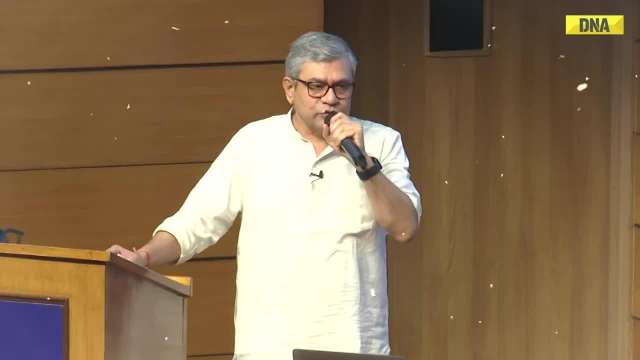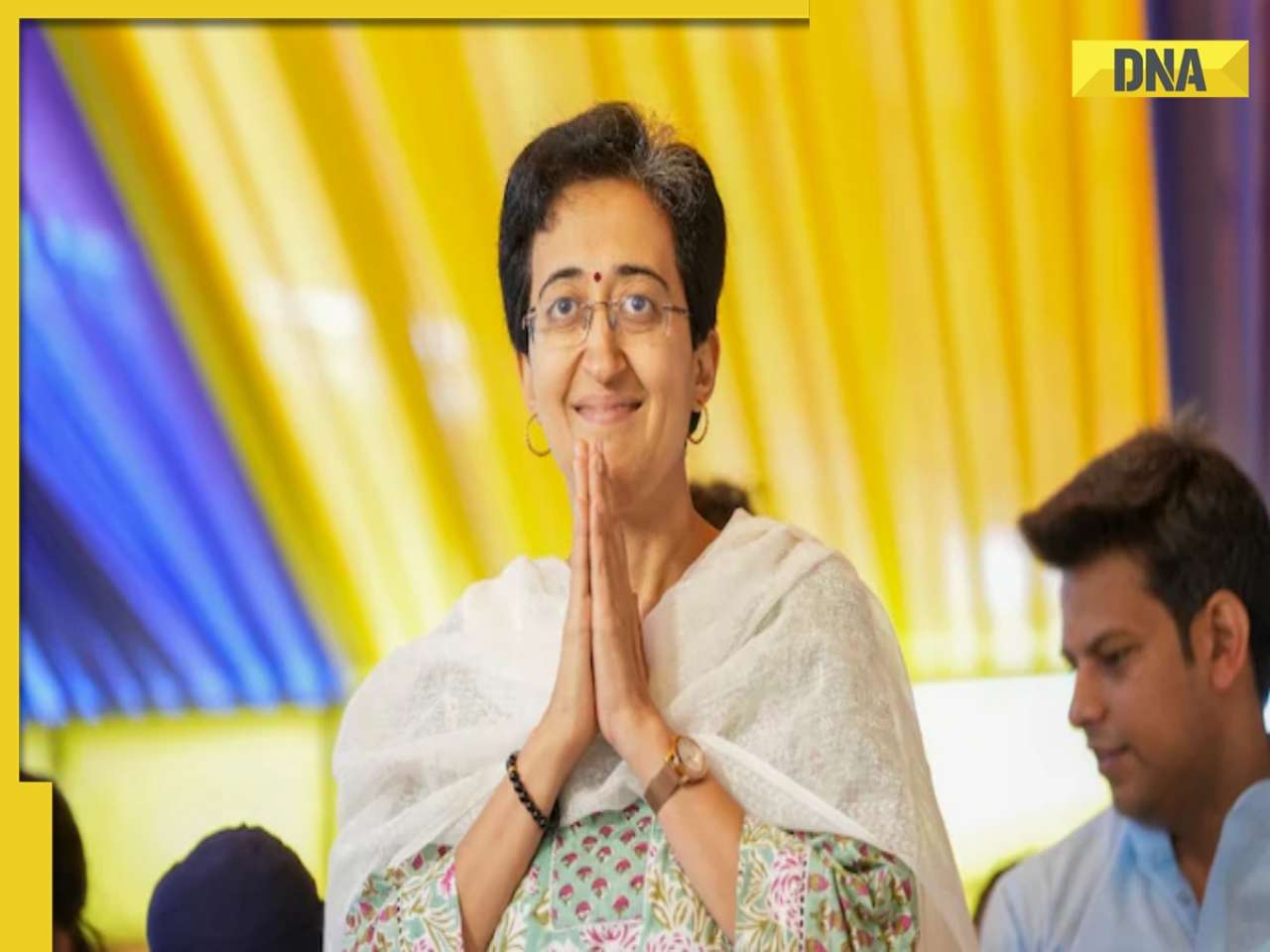A staggering 51% of India's labor force works over 49 hours per week, securing India the second spot globally for prolonged work hours.
India has positioned itself as one of the leading nations globally in terms of overworked employees, as per recent data from the International Labour Organization (ILO). The average worker in India dedicates 46.7 hours per week to their job, ranking the country among the top contenders for the longest working hours worldwide.
A staggering 51% of India's labor force works over 49 hours per week, securing India the second spot globally for prolonged work hours. In this ranking, Bhutan takes the lead with a significant 61% of its workers exceeding the 49-hour mark. Additionally, other South Asian nations like Bangladesh (47%) and Pakistan (40%) prominently appear in the top 10, highlighting a revalent trend of extended work hours.
Among the countries with high average weekly work hours, India stands out for the significant percentage of its workforce surpassing the 49-hour threshold. The United Arab Emirates (UAE) and Lesotho, with average weekly hours of 50.9 and 50.4, respectively.
On the other hand, countries such as the Netherlands (31.6 hours) and Norway (33.7 hours) showcase a more work-life balance, boasting notably lower weekly averages.
The research underscores substantial differences in working trends worldwide. Vanuatu, an Oceania nation, records the lowest average working hours, with workers clocking in at only 24.7 hours per week on average. Merely 4 percent of its workforce works beyond the 49-hour threshold, presenting a stark contrast to the work ethic prevalent in South Asia.
Similary, Kiribati and the Federated States of Micronesia, averaging 27.3 and 30.4 working hours, respectively, embrace a more laid-back stance, with minimal individuals exceeding 49 hours of work.
In contrast, developed countries lsuch as Germany (34.2 hours), Japan (36.6 hours), and Singapore (42.6 hours) showcases fewer occurrences of extreme working hours, suggesting that effective labor regulations can harmonize productivity and employee welfare.
![submenu-img]() 'Soye hai sab log': Skipper Rohit Sharma fumes at teammate during 1st India vs Bangladesh Test
'Soye hai sab log': Skipper Rohit Sharma fumes at teammate during 1st India vs Bangladesh Test![submenu-img]() Delhi Capitals confirm Rishabh Pant as their top retention for IPL 2025: Report
Delhi Capitals confirm Rishabh Pant as their top retention for IPL 2025: Report![submenu-img]() Moon and Venus Orbiter Journeys, Space Station, Gaganyaan Mission
Moon and Venus Orbiter Journeys, Space Station, Gaganyaan Mission![submenu-img]() 'So much tension and stress...': Father of EY Employee who died of 'overwork'
'So much tension and stress...': Father of EY Employee who died of 'overwork'![submenu-img]() Watch: Shubman Gill's father gives priceless reaction to his son's exceptional century in Chennai Test
Watch: Shubman Gill's father gives priceless reaction to his son's exceptional century in Chennai Test![submenu-img]() 'मैं ब्लैक नाज़ी, नहाती लड़कियां देखना शौक.., पोर्न साइट पर Mark Robinson के 'विवादित' बयान, डोनाल्ड ट्रंप की बढ़ी मुश्किलें?
'मैं ब्लैक नाज़ी, नहाती लड़कियां देखना शौक.., पोर्न साइट पर Mark Robinson के 'विवादित' बयान, डोनाल्ड ट्रंप की बढ़ी मुश्किलें?![submenu-img]() PM Modi US Visit: QUAD देशों का संयुक्त बयान जारी, रूस-यूक्रेन युद्ध पर चिंता, 5 बिंदुओं में जानें आपके काम की बातें
PM Modi US Visit: QUAD देशों का संयुक्त बयान जारी, रूस-यूक्रेन युद्ध पर चिंता, 5 बिंदुओं में जानें आपके काम की बातें![submenu-img]() IND vs BAN: BCCI ने कानपुर टेस्ट के लिए टीम इंडिया का किया ऐलान, देखें स्क्वाड में क्या हुआ बदलाव
IND vs BAN: BCCI ने कानपुर टेस्ट के लिए टीम इंडिया का किया ऐलान, देखें स्क्वाड में क्या हुआ बदलाव![submenu-img]() Crime News: शरीर के 36 टुकड़े, फ्रिज में मिली लाश, Bengaluru में हुआ श्रद्धा जैसा हत्याकांड
Crime News: शरीर के 36 टुकड़े, फ्रिज में मिली लाश, Bengaluru में हुआ श्रद्धा जैसा हत्याकांड ![submenu-img]() बाजार से गायब हो रहे 10, 20 और 50 के नोट, कांग्रेस के किस नेता ने वित्त मंत्री को चिट्ठी लिखी लिखकर जताई चिंता
बाजार से गायब हो रहे 10, 20 और 50 के नोट, कांग्रेस के किस नेता ने वित्त मंत्री को चिट्ठी लिखी लिखकर जताई चिंता![submenu-img]() Ford to return to India after 2 years with reopening of....
Ford to return to India after 2 years with reopening of....![submenu-img]() Maruti Suzuki launches new Swift CNG, check price, mileage, other features
Maruti Suzuki launches new Swift CNG, check price, mileage, other features![submenu-img]() ‘30 LPA, 3BHK, no in-laws’: Woman earning Rs 1.32 lakh salary lists demands for future husband, netizens say...
‘30 LPA, 3BHK, no in-laws’: Woman earning Rs 1.32 lakh salary lists demands for future husband, netizens say...![submenu-img]() In a big EV push, Centre launches Rs 10900 crore PM E-Drive scheme to replace…
In a big EV push, Centre launches Rs 10900 crore PM E-Drive scheme to replace…![submenu-img]() World’s longest car has helipad, swimming pool, mini-golf course, can seat over…; it cost…
World’s longest car has helipad, swimming pool, mini-golf course, can seat over…; it cost…![submenu-img]() Meet boy, who cleared JEE Advanced with AIR 99, then dropped out of IIT counselling due to...
Meet boy, who cleared JEE Advanced with AIR 99, then dropped out of IIT counselling due to...![submenu-img]() Meet man, IIT graduate who was hired at Rs 100 crore salary but was fired within a year, he is now...
Meet man, IIT graduate who was hired at Rs 100 crore salary but was fired within a year, he is now...![submenu-img]() Meet man who passed JEE Advanced with AIR 1, completed B.Tech from IIT Bombay, is now pursuing…
Meet man who passed JEE Advanced with AIR 1, completed B.Tech from IIT Bombay, is now pursuing…![submenu-img]() Meet man, whose father's death encouraged him to quit IAS job, create multi-crore company, he is...
Meet man, whose father's death encouraged him to quit IAS job, create multi-crore company, he is...![submenu-img]() Meet woman, who scored 97% in class 12, secured 705 out of 720 marks in NEET exam, her AIR is...
Meet woman, who scored 97% in class 12, secured 705 out of 720 marks in NEET exam, her AIR is...![submenu-img]() Congress President Kharge Slams & Opposes 'One Nation, One Election' Proposal, Calls It Impractical
Congress President Kharge Slams & Opposes 'One Nation, One Election' Proposal, Calls It Impractical![submenu-img]() Why 'One Nation One Election' Is important? Ashwini Vaishnaw Explains After It Gets Cabinet Approval
Why 'One Nation One Election' Is important? Ashwini Vaishnaw Explains After It Gets Cabinet Approval![submenu-img]() Jammu Kashmir Assembly Election 2024 Phase 1 Highlights: What Happened In First phase In J&K Polls?
Jammu Kashmir Assembly Election 2024 Phase 1 Highlights: What Happened In First phase In J&K Polls?![submenu-img]() One Nation One Election: Centre Clears Proposal, Bill To Be Introduced In Winter Session | Modi 3.0
One Nation One Election: Centre Clears Proposal, Bill To Be Introduced In Winter Session | Modi 3.0![submenu-img]() Haryana Elections 2024: Is BJP Set To Lose In Haryana? Anti-Incumbency And Other Factors Analysed
Haryana Elections 2024: Is BJP Set To Lose In Haryana? Anti-Incumbency And Other Factors Analysed![submenu-img]() This country once ruled half of the world, now is in 100% debt, here are other developed nations facing similar issue
This country once ruled half of the world, now is in 100% debt, here are other developed nations facing similar issue![submenu-img]() Meet Mukesh Ambani, Ratan Tata's competitor, who runs business worth Rs 70000000000, she is...
Meet Mukesh Ambani, Ratan Tata's competitor, who runs business worth Rs 70000000000, she is...![submenu-img]() Revised LTC rules: Air travel relaxation, new changes in travelling perks for THESE govt employees, check details
Revised LTC rules: Air travel relaxation, new changes in travelling perks for THESE govt employees, check details![submenu-img]() Meet woman, richer than superstar husband who charges Rs 100 crore per film, her net worth is Rs...
Meet woman, richer than superstar husband who charges Rs 100 crore per film, her net worth is Rs...![submenu-img]() Billionaire Mark Cuban says he would buy X 'in a heartbeat', Elon Musk's cheeky response goes viral
Billionaire Mark Cuban says he would buy X 'in a heartbeat', Elon Musk's cheeky response goes viral![submenu-img]() NASA Nebula: 5 mesmerising images of Red Spider, Crab, Orian Nebulae captured by NASA's Hubble Telescope
NASA Nebula: 5 mesmerising images of Red Spider, Crab, Orian Nebulae captured by NASA's Hubble Telescope![submenu-img]() 5 best places to visit in India this October
5 best places to visit in India this October![submenu-img]() This film rejected by Rajesh Khanna made Feroz Khan a superstar, was delayed for a year, superstar had to..
This film rejected by Rajesh Khanna made Feroz Khan a superstar, was delayed for a year, superstar had to..![submenu-img]() Meet Sridevi’s ‘daughter’, one of Pakistan’s highest-paid actresses, who is likely to star opposite Prabhas in...
Meet Sridevi’s ‘daughter’, one of Pakistan’s highest-paid actresses, who is likely to star opposite Prabhas in...![submenu-img]() 7 foods named after Indian cities
7 foods named after Indian cities![submenu-img]() Moon and Venus Orbiter Journeys, Space Station, Gaganyaan Mission
Moon and Venus Orbiter Journeys, Space Station, Gaganyaan Mission![submenu-img]() 'So much tension and stress...': Father of EY Employee who died of 'overwork'
'So much tension and stress...': Father of EY Employee who died of 'overwork'![submenu-img]() 'Stopped road works, medicines, garbage collection....': Delhi CM Atishi hits out at BJP, vows to resume all work
'Stopped road works, medicines, garbage collection....': Delhi CM Atishi hits out at BJP, vows to resume all work![submenu-img]() Tirupati laddu row: Temple trust's big assurance to devotees amid ‘beef tallow’ in prasadam, says 'divinity, purity of..
Tirupati laddu row: Temple trust's big assurance to devotees amid ‘beef tallow’ in prasadam, says 'divinity, purity of..![submenu-img]() 'BJP spreading lies, desperate to...': Rahul Gandhi breaks silence on his Sikh remark in US
'BJP spreading lies, desperate to...': Rahul Gandhi breaks silence on his Sikh remark in US












































)
)
)
)
)
)
)
)
)
)
)
)
)
)
)





)
)
)
)
)
)